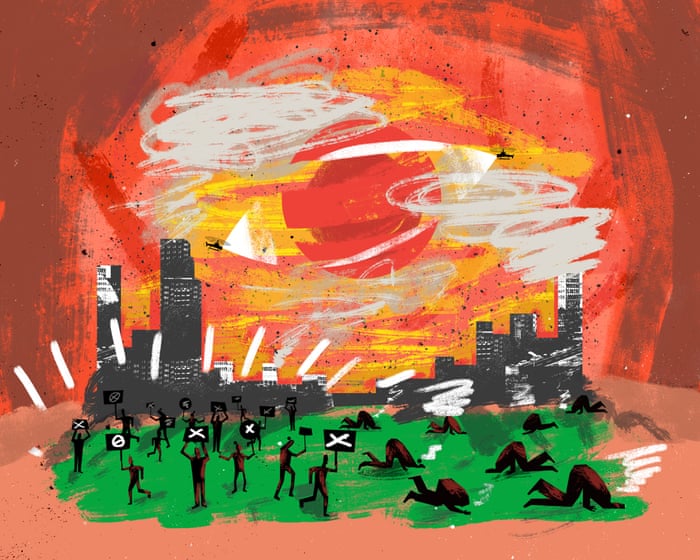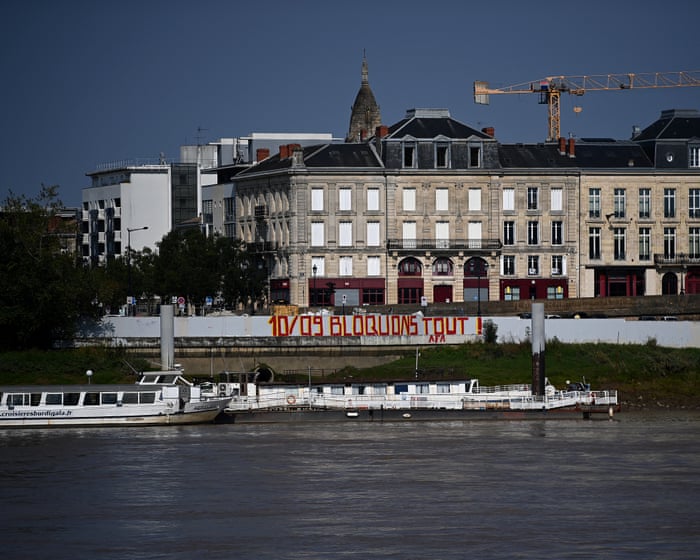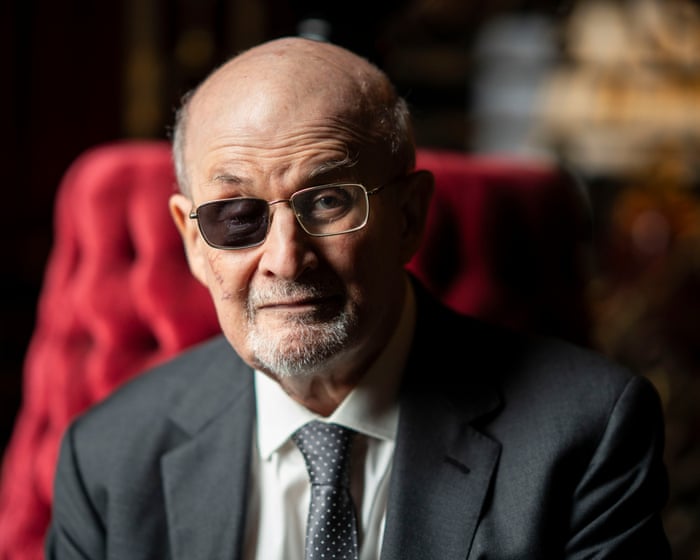How would you act if your democracy was being taken apart? For most Western nations, this used to be a theoretical question. Societies that had gone through this, like Germany in the 1930s, felt increasingly remote. The varied ways people responded to authoritarian rule—both in politics and daily life—were intriguing and crucial to examine, but they seemed less relevant to the present day.
That’s no longer the case. Illiberal populism has spread worldwide, vying for power or digging in, from Argentina to Italy, France to Indonesia, Hungary to Britain. Yet the most significant example of a relatively free, pluralistic society transforming into something else is likely the United States, now nine months into Donald Trump’s second term.
As often happens, the U.S. is showing what the future might hold for many parts of the globe. Trump’s crackdowns on immigrants, centralization of power, suppression of dissent, favors for loyal oligarchs, and disregard for truth and law aren’t unique. Even governments that position themselves as alternatives to populism, like Keir Starmer’s, increasingly adopt some of its traits, such as a showy toughness toward asylum seekers. With over three years left in Trump’s chaotic presidency—and possibly more if he overcomes barriers to a third term—life under his rule already offers the most unsettling view of democracy under threat so far.
Populism is divisive, pitting “the people” against perceived enemies, and Trump’s unpredictability adds to the uneven domestic impact of his regime. This inconsistency is mirrored in how different groups and individuals react to its actions. These complex, often troubling patterns are especially evident in California, a state he strongly dislikes for its liberal values and multiculturalism, and where his administration has intervened most aggressively.
In Los Angeles, where U.S. Marines, National Guard troops, and armed ICE officers have been controversially deployed by the federal government since June, some predominantly Latino neighborhoods remain unnervingly quiet. In Boyle Heights last Wednesday morning, Cesar Chavez Avenue and Mariachi Plaza—usually bustling hubs for shopping and socializing—were nearly deserted. Bakeries and cafes stood empty, with only a few outdoor seats occupied despite the pleasant autumn sun. Fear of sudden arrest, detention, and deportation has kept many people indoors and away from public spaces for months.
Yet in the nearby arts district of downtown LA, a gentrified area of converted warehouses and factories, bakeries and cafes were as busy as ever. Groups of mostly white, fashionably dressed people chatted over expensive iced coffees and artisanal sandwiches about their latest creative projects. The fact that Trump and his supporters would likely despise the scene, or that something close to martial law was in effect just a short distance away, didn’t seem to faze these ambitious millennials. In the U.S., as in other countries turning authoritarian, those untouched by the state’s actions continue with their careers, social lives, and consumerism—sometimes even more intensely, as a form of escape.
However, avoiding politics and engaging in it aren’t always mutually exclusive. Often, both impulses coexist in people, especially when faced with something as provocative and draining as hard-right populism. Periods of passivity and apparent acceptance of the status quo alternate with a strong urge to take action.
Two weeks ago, I attended a No Kings protest in Beverly Hills, a city more associated with wealth than activism. I expected a small gathering of elite liberals.Instead of a formal rally, a lively crowd of a few thousand people of all ages spent hours marching back and forth along the edge of a park. They carried clever anti-Trump signs and chanted to the beat of drums and the constant honking of passing cars. Their chants were a bit unpolished, suggesting they weren’t seasoned protesters, and their cheerful smiles made it seem like they were enjoying something unexpectedly fun and a little mischievous. The whole scene was uplifting—politics coming alive for many, perhaps for the first time.
But authoritarianism can also provoke more weary reactions. In San Francisco, a city with a strong political tradition, while there have been large “No Kings” protests, I also encountered a sense of contempt toward Trump and his circle. People scorned their blatant self-interest, cartoonish bullying, and wild exaggerations, which risked turning into angry apathy—a feeling that the regime was just a grim fact of life, like a government in a deeply corrupt country or the old Soviet bloc. This response, much like refusing to give Trump the attention he craves, can be seen as a form of deliberate disengagement and a way to cope. Yet while liberals and leftists brood, his administration forges ahead relentlessly.
While I was in San Francisco, rumors swirled that Trump was planning to send troops or federal agents into what he called a failing city. Some locals I spoke to laughed off the idea. They pointed to the beautiful streets, thriving businesses, scenic parks, and extensive public transport—a quality of life that, though increasingly out of reach for some, still surpasses that of many places that support Trump.
However, in nations ruled by autocratic populism and digital media, propaganda often trumps facts. Trump eventually called off his San Francisco invasion, but the threat remains, like a crude but effective TV cliffhanger. Building a political movement that can consistently stand up to the showmanship and drama of right-wing populism has so far eluded Trump’s opponents, with a few exceptions like left-wing figures Zohran Mamdani and Bernie Sanders.
If Reform UK comes to power, as seems increasingly likely, British liberals and leftists will confront the same challenge. Nigel Farage could roll out a stream of attention-grabbing policies from Downing Street, such as the Trump-style dismantling and politicization of Whitehall that Reform promised this week. These policies might fail or disappoint, as Trump’s often have, but they still shape the political landscape. Unless populism’s opponents build an equally relentless and compelling movement, and bring in more of those whom populism victimizes and intimidates into silence, this age of autocrats will continue. As the U.S. demonstrates, sporadic resistance, contempt, and avoidance are not enough.
Andy Beckett is a Guardian columnist.
Frequently Asked Questions
Of course Here is a list of FAQs about what to do if you witness democracy being dismantled framed around the idea of taking action from wherever you are
BeginnerLevel Questions
1 What does democracy being taken apart actually look like in real life
Its when the fundamental rules of a fair society start to weaken This can include attacks on a free press passing laws to make voting harder for certain groups undermining courts to make them less independent or spreading widespread misinformation to create public confusion
2 Im just one person Can I really make a difference
Absolutely Democracy is built on the collective action of individuals Your single vote voice and actions contribute to the larger whole History shows that sustained public pressure from ordinary people is a powerful force for change
3 Whats the very first thing I should do if Im concerned
Get informed from reliable nonpartisan news sources Understanding what is happening is the essential first step before you can take effective action
4 Im busy and feel overwhelmed Whats a small thing I can do right now
You can contact your elected representatives A quick phone call email or letter expressing your concern takes only a few minutes but shows them that their constituents are watching and care about these issues
5 Why should I care if Im not directly affected yet
Democracy protects everyones rights If its eroded for one group today it becomes easier to erode for another group including yours tomorrow Its about safeguarding a system that is designed to protect all citizens
Advanced Practical Questions
6 Beyond voting what are the most effective ways to push back
Join or support organizations Find and back groups that are on the front lines defending democratic principles
Engage in local politics Attend town halls school board meetings and city council sessions Local politics is where national trends often start and where your voice can be loudest
Support independent journalism Subscribe to credible news outlets A free press is a cornerstone of democracy and needs financial support to hold power accountable
7 How can I talk to friends or family who dont see the problem or who support the erosion
Focus on shared values not partisan politics



